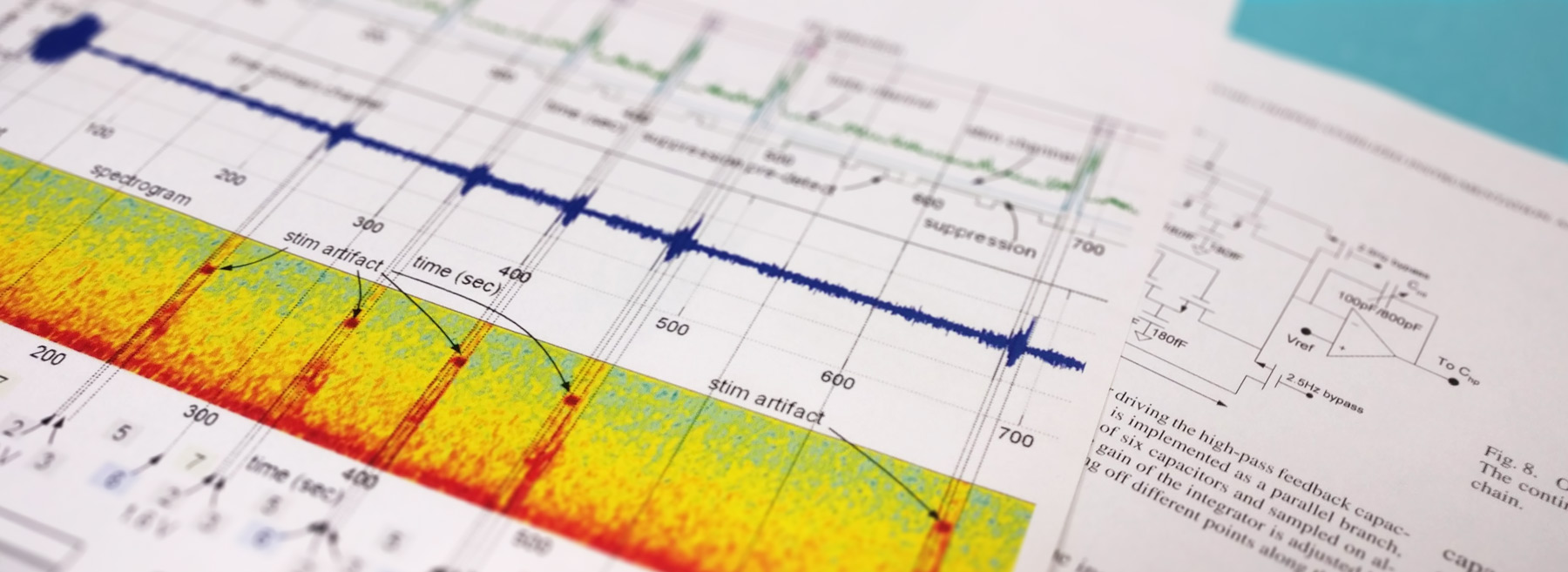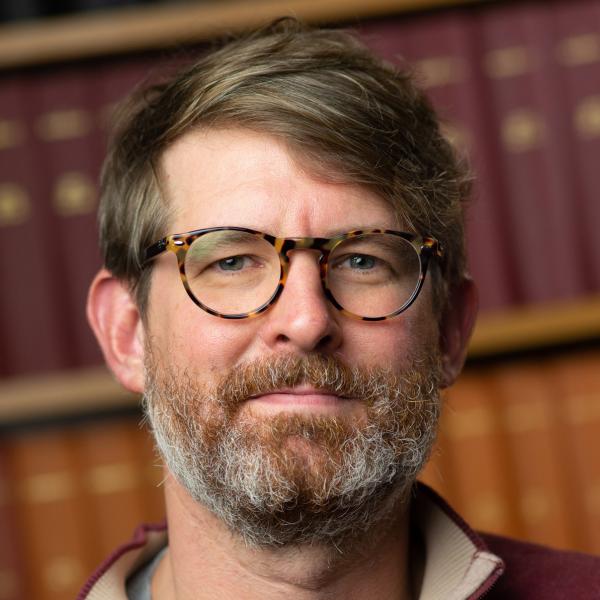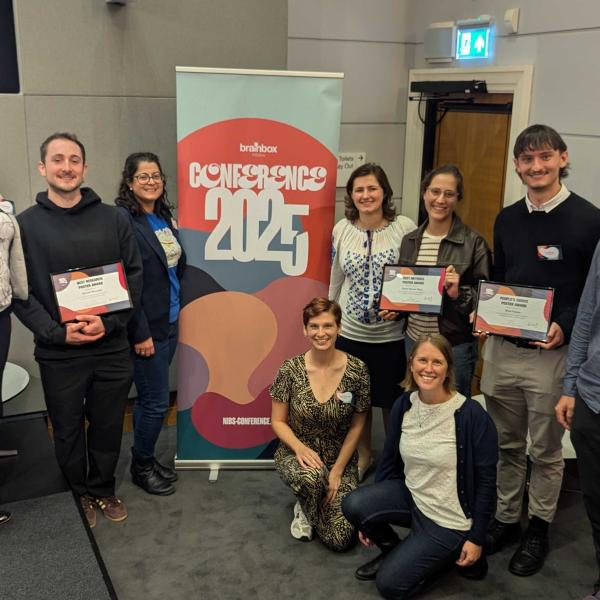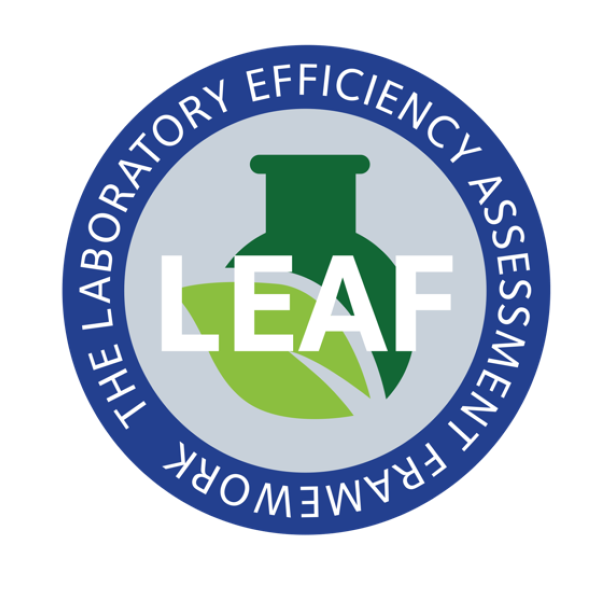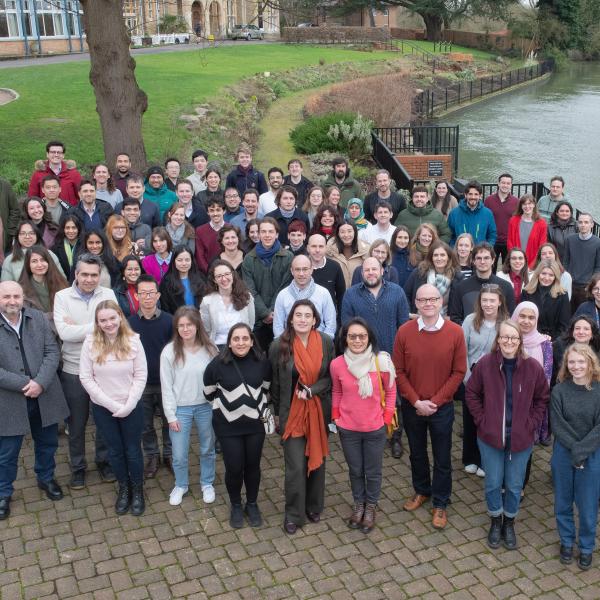Denison Group
The physiologic controls team explores novel technology to interact with the nervous system, with a goal to restore function in people with neurological and neurodegenerative disorders. Our translational engineering efforts include the creation of novel research tools for neuroscience discovery, and the application of the resulting discoveries towards developing better disease treatments.
When treating neurological disorders, doctors have generally relied on drug discoveries. Yet the significant personal and societal costs incurred by such disorders, and current state of the pharma pipeline, motivate alternative approaches to treatment.
Bioelectronics work directly with the body's own nervous system to monitor brain signals and, as needed, modulate the electrical activity within nerves to alleviate symptoms of diseases. Examples of bioelectronic therapies for the nervous system include brain modulation for Parkinson’s and epilepsy, spinal cord stimulation for chronic pain, and sacral nerve stimulation for incontinence. Despite clinical success in treating symptoms of diseases like Parkinson's, existing bioelectronic systems have several limitations that arguably limit their adoption. For example, currently a skilled clinician is required to configure the implant, and the system's output is relatively inflexible to the rapidly changing and reactive activity of the nervous system.
The microelectronic basis and digital programmability of bioelectronic systems means that there is huge potential for flexibility in both research and future medical device design. Emerging technology offers the possibility of building restorative neural systems, which are adaptable and programmable for various diseases, as well as specifically for individuals. The codes used to programme the systems can be modified as scientific understanding of the brain evolves, and also be used to rapidly respond to physiological fluctuations within the body. But to fully realize this potential, we first need a better understanding of how the brain functions and responds to bioelectronic interventions.
To this end, our research explores new integrated bioelectronic hardware and software platforms for investigating foundational clinical neuroscience and improved treatments for neurological disorders. We partner with industry and clinical collaborators on both tool development and proof-of-concept testing (see highlighted publications). A common focus in on translating areas of neurotechnology that provide a high return on investment for the healthcare system (improvement in patient outcomes/cost for deployment). These prototypes often leverage established clinical pathways and commercial systems with a targeted technical upgrade enabling novel functionality. Examples include adding new stimulation pattern capability to an existing tonic stimulator to enable rehabilitation research, and adding sensing and algorithm circuitry to a deep brain stimulator to prototype bi-directional brain-machine-interfaces for treating brain disorders. The diversity of these applications reflects both the breadth of neurological disorders, and the potential of bioelectronic systems to address them.
DYNEUMO -- Implantable Bioelectronic Systems: Our team is co-developing with industry partners "instrumented medical devices" that enable clinical neuroscience discovery and prototyping of adaptive algorithms across timescales from milliseconds (e.g. respond to field-potentials) to hours and days (e.g. modulate circadian and ultradian rhythms). We are currently supporting pilot trials in multiple system atrophy, epilepsy, and chronic pain.
MAGNETO -- "Digital" Transcranial Magnetic Stimulation: Our team is co-developing with industry partners and colleagues in Engineering Science a new method for delivering non-invasive brain stimulation. Our technique will enable greater flexibility in patterns and pulse shapes compared to predicate designs.
MORPHEUS -- Sleep: Our international collaboration (Oxford, Surrey, Mayo Clinic, UCSF), funded by DARPA, is exploring the application of targeted brain stimulation for modulating sleep rhythms.
OPENMIND -- Platform Science: The OpenMind consortium (UCSF, Mayo Clinic, Brown University, and Oxford) is developing and managing neuroscience toolkits for instrumented medical devices.
- Bioelectronic systems design including micropower mixed-signal electronics, tissue-electrode interfaces, and algorithms
- Power electronics for megawatt pulse generation for transcranial brain stimulation
- Machine learning methods for assessment of large datasets enabled with our scientific instruments
- Mathematical models for assisting in algorithm design
- Quality management systems (e.g. 13485) and design controls for meeting regulatory requirements
We are committed to fostering an inclusive work environment that celebrates diversity and promotes equal opportunity within our group and the wider MRC BNDU.
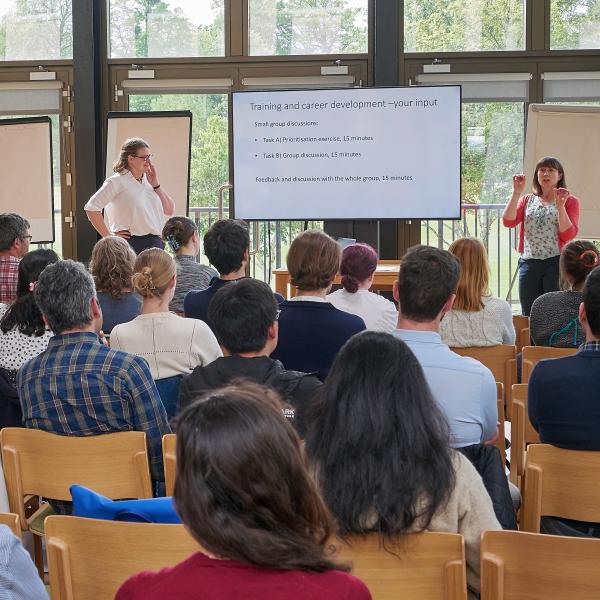
Mary Muers (far right) moderates an interactive session about training and career development opportunities.
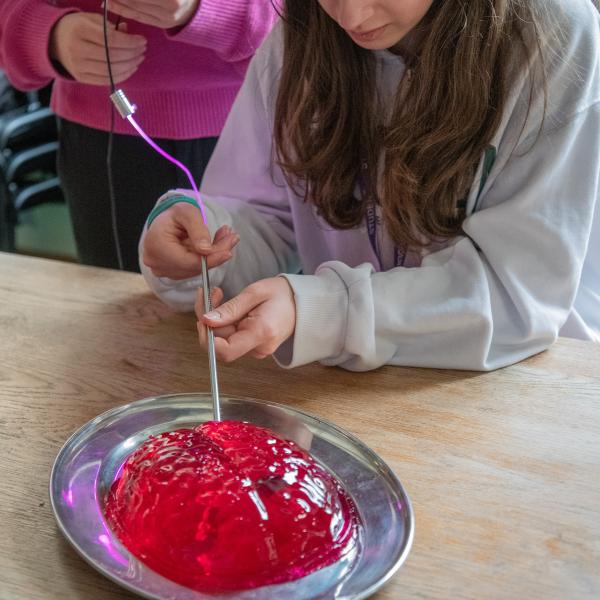
A visiting school pupil tries their hand at implanting a dummy stimulation electrode in a jelly brain!
